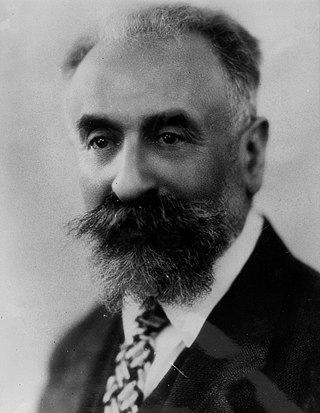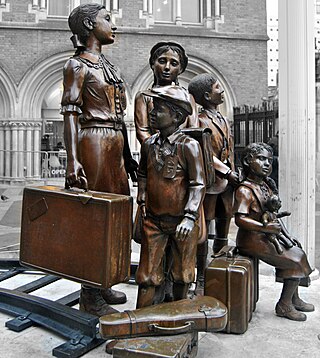Related Research Articles
Social science is one of the branches of science, devoted to the study of societies and the relationships among individuals within those societies. The term was formerly used to refer to the field of sociology, the original "science of society", established in the 18th century. In addition to sociology, it now encompasses a wide array of academic disciplines, including anthropology, archaeology, economics, human geography, linguistics, management science, communication science, psychology and political science.

Sociology of sport, alternately referred to as sports sociology, is a sub-discipline of sociology which focuses on sports as social phenomena. It is an area of study concerned with the relationship between sociology and sports, and also various socio-cultural structures, patterns, and organizations or groups involved with sport. This area of study discusses the positive impact sports have on individual people and society as a whole economically, financially, and socially. Sociology of sport attempts to view the actions and behavior of sports teams and their players through the eyes of a sociologist.

Karl Mannheim was an influential Hungarian sociologist during the first half of the 20th century. He is a key figure in classical sociology, as well as one of the founders of the sociology of knowledge. Mannheim is best known for his book Ideology and Utopia (1929/1936), in which he distinguishes between partial and total ideologies, the latter representing comprehensive worldviews distinctive to particular social groups, and also between ideologies that provide support for existing social arrangements, and utopias, which look to the future and propose a transformation of society.

Robert Ezra Park was an American urban sociologist who is considered to be one of the most influential figures in early U.S. sociology. Park was a pioneer in the field of sociology, changing it from a passive philosophical discipline to an active discipline rooted in the study of human behavior. He made significant contributions to the study of urban communities, race relations and the development of empirically grounded research methods, most notably participant observation in the field of criminology. From 1905 to 1914, Park worked with Booker T. Washington at the Tuskegee Institute. After Tuskegee, he taught at the University of Chicago from 1914 to 1933, where he played a leading role in the development of the Chicago School of sociology.

Marcel Mauss was a French sociologist and anthropologist known as the "father of French ethnology". The nephew of Émile Durkheim, Mauss, in his academic work, crossed the boundaries between sociology and anthropology. Today, he is perhaps better recognised for his influence on the latter discipline, particularly with respect to his analyses of topics such as magic, sacrifice and gift exchange in different cultures around the world. Mauss had a significant influence upon Claude Lévi-Strauss, the founder of structural anthropology. His most famous work is The Gift (1925).
Nancy Julia Chodorow is an American sociologist and professor. She began her career as a professor of Women's studies at Wellesley College in 1973, and from 1974 on taught at the University of California, Santa Cruz, until 1986. She then was a professor in the departments of sociology and clinical psychology at the University of California, Berkeley until she resigned in 1986, after which she taught psychiatry at Harvard Medical School/Cambridge Health Alliance. Chodorow is often described as a leader in feminist thought, especially in the realms of psychoanalysis and psychology.

Feminist sociology is an interdisciplinary exploration of gender and power throughout society. Here, it uses conflict theory and theoretical perspectives to observe gender in its relation to power, both at the level of face-to-face interaction and reflexivity within social structures at large. Focuses include sexual orientation, race, economic status, and nationality.
John Rex was a South African-born British sociologist. Born in Port Elizabeth, he was radicalised after working for the South African Bantu Affairs Administration and moved to Britain. He was a lecturer at the universities of Leeds (1949–62), Birmingham (1962–64), Durham (1964–70), Warwick, Aston (1979–84), Toronto (1974–75), Cape Town (1991) and New York (1996). He was also a member of the UNESCO International Experts' Committee on Racism and Race Prejudice (1967) and president of the International Sociological Association's Research Committee on Racial and Ethnic Minorities (1974–82).

The sociology of immigration involves the sociological analysis of immigration, particularly with respect to race and ethnicity, social structure, and political policy. Important concepts include assimilation, enculturation, marginalization, multiculturalism, postcolonialism, transnationalism and social cohesion.
Reverse racism, sometimes referred to as reverse discrimination, is the concept that affirmative action and similar color-conscious programs for redressing racial inequality are forms of anti-white racism. The concept is often associated with conservative social movements and reflects a belief that social and economic gains by Black people and other people of color cause disadvantages for white people.
The Department of Social Relations for Interdisciplinary Social Science Studies, more commonly known as the "Department of Social Relations", was an interdisciplinary collaboration among three of the social science departments at Harvard University beginning in 1946. Originally, the program was headquartered in Emerson Hall at Harvard before moving to William James Hall in 1965. While the name "Social Relations" is often associated with the program's long-time chair and guiding spirit, sociologist Talcott Parsons, many major figures of mid-20th-century social science also numbered among the program's faculty, including psychologists Gordon Allport, Jerome Bruner, Roger Brown, and Henry Murray (personality); anthropologists Clyde and Florence Kluckhohn, John and Beatrice Whiting, Evon Z. Vogt ; and sociologist Alex Inkeles. Other prominent scholars, such as Jerome Kagan and Ezra Vogel belonged to the department early in their careers before it split. Many of the department's graduate students also went on to be major figures in US social sciences during the latter part of the twentieth century; their work tends towards strong interdisciplinary and cross-disciplinary approaches.

Joe Richard Feagin is an American sociologist and social theorist who has conducted extensive research on racial and gender issues in the United States. He is currently the Ella C. McFadden Distinguished Professor at Texas A&M University.

Sociology is the scientific and systematic study of human society that focuses on society, human social behavior, patterns of social relationships, social interaction, and aspects of culture associated with everyday life. Regarded as a part of both the social sciences and humanities, sociology uses various methods of empirical investigation and critical analysis to develop a body of knowledge about social order and social change. Sociological subject matter ranges from micro-level analyses of individual interaction and agency to macro-level analyses of social systems and social structure. Applied sociological research may be applied directly to social policy and welfare, whereas theoretical approaches may focus on the understanding of social processes and phenomenological method.

Culture is a concept that encompasses the social behavior, institutions, and norms found in human societies, as well as the knowledge, beliefs, arts, laws, customs, capabilities, and habits of the individuals in these groups. Culture is often originated from or attributed to a specific region or location.
Philip Kasinitz is an American sociologist. He is currently a Presidential Professor of Sociology at the CUNY Graduate Center where he has chaired the doctoral program in Sociology since 2001.

Body culture studies describe and compare bodily practice in the larger context of culture and society, i.e. in the tradition of anthropology, history and sociology. As body culture studies analyse culture and society in terms of human bodily practices, they are sometimes viewed as a form of materialist phenomenology.
Eric Anderson is an American sociologist and sexologist specializing in adolescent men's gender and sexualities. He holds the position of Professor of Masculinities, Sexualities and Sport at the University of Winchester, in England. His research has been recognized for excellence by the British Academy of Social Sciences and he is an elected Fellow of the International Academy of Sex Research. Anderson is an advocate for the inclusion of gay men in sport and is America's first openly gay high-school coach, having come out at Huntington Beach High School, the same high-school that produced the nation's first openly gay, professional team sport athlete, Robbie Rogers who recently played for LA Galaxy.

The sociology of race and ethnic relations is the study of social, political, and economic relations between races and ethnicities at all levels of society. This area encompasses the study of systemic racism, like residential segregation and other complex social processes between different racial and ethnic groups.
Endstufe is a German far-right rock band from Bremen.
Eduardo Bonilla-Silva is an American sociologist and professor of sociology at Duke University. He was the 2018 president of the American Sociological Association.
References
- ↑ Petter, Olivia (18 May 2018). "Banning the internet is like child abuse, sociologist claims". The Independent .
- ↑ Gardner, Bill (3 March 2014). "Stop pushing children to be sports stars - they will only fail, says expert". The Daily Telegraph .
- ↑ "Ellis Cashmore". The Conversation .
- ↑ "Ellis Cashmore". IMDb.
- ↑ "BSS Staff | Aston University". Aston University. Archived from the original on 2016-05-31. Retrieved 2016-10-21.
- ↑ "Biography | Ellis Cashmore".
- ↑ "Ellis Cashmore". Fair Observer.
- ↑ "Ellis Cashmore". Briswa.
- ↑ Mehaffrey, John (8 September 2010). "Culture of secrecy still surrounds gay footballers". Reuters.
- ↑ "Opinion: It's time to allow doping in sport". CNN. 4 October 2012.